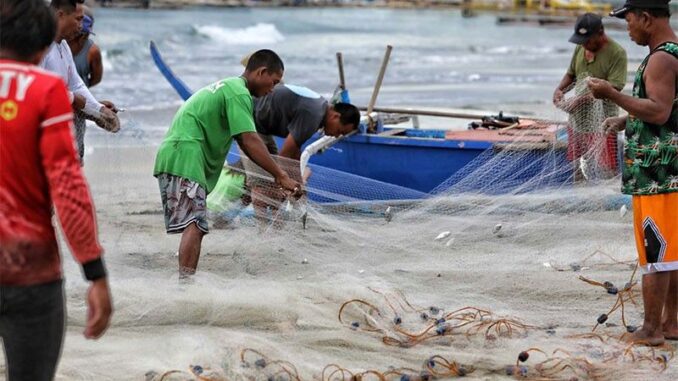
MANILA, Philippines — Younger members of Filipino fishing households left the industry between 2012 and 2022 to seek better jobs, according to the Philippine Statistics Authority.
The PSA reported that the average number of fishing operators per household in 2022 dropped to 1.03 from 1.05 in 2012 despite an overall increase in the number of households engaged in fishing operations.
“This suggests that fishing is becoming more of a household activity with fewer members per household actively engaged as operators, potentially due to diversification or transition of livelihood or a decrease in younger generations engaged in fishing,” the PSA said.
The figures were part of the results of the 2022 Census of Agriculture and Fisheries conducted by the PSA among households and non-household entities that operated fishing activities. The results were released last week.
The PSA said the number of households with fishing operators at the end of 2022 increased by 9.3 percent to 830,954 from 760,297 recorded ten years ago.
Likewise, fishing operators rose to 853,065, about 7.3 percent higher than the 795,070 recorded in 2012, the PSA added.
However, the number of fishing operators in the country under 50 years old declined during the 10-year period, while those aged 50 years and above saw a substantial growth, according to PSA.
Filipino fishing operators aged below 50 years old at the end of 2022 fell by 3.6 percent to 557,368 from 578,249 in 2012. Meanwhile, fishing operators aged 50 years and above increased by 36.4 percent to 295,697 from 216,821.
“Notably, Zamboanga Peninsula and Caraga demonstrated significant growth among operators aged 50 years and above, with their numbers more than doubling – rising by 116.3 percent and 110 percent, respectively,” the PSA said.





Be the first to comment